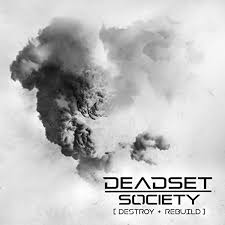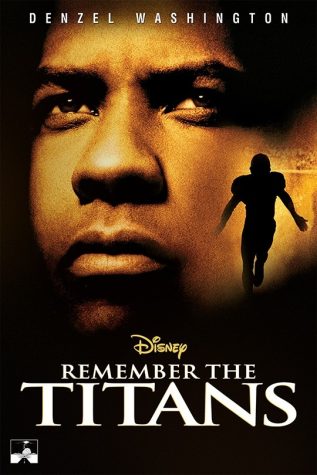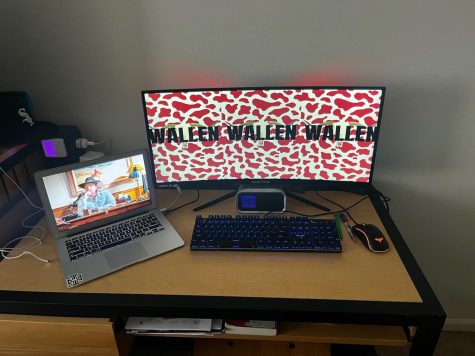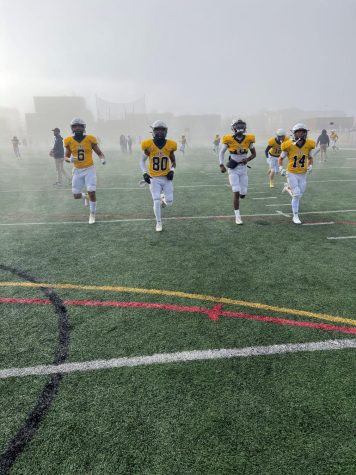REVIEW: Destroy + Rebuild by Deadset Society

Canadian rock band Deadset Society was born from the ashes of My Darkest Days, as Matt Walst left his position as lead vocalist and rhythm guitarist in that band to become the front man for Three Days Grace in 2013.
Four years later, in 2017, Deadset Society arrived on the scene under the name “Never Say Die,” (before having to change their name due to trademark infringement) led by lead vocalist and rhythm guitarist Reid Henry and joined by fellow My Darkest Days bandmate and bassist Brendan McMillan, alongside drummer Mike Langford and Dane Hartsell, who performs lead guitar and backing vocals.
And what started off as an EP became a full-on album in the form of Destroy + Rebuild, released on Jan. 20, 2017.
Now, I’m fairly lenient on first albums because first albums are where the mistakes are made, you know? The sound isn’t really figured out, everyone’s getting into the rhythm of playing together and figuring out their collective strengths and weaknesses… first albums are basically a hesitant dip in the water to see what sinks and what can swim.
And first album leniency aside, Destroy + Rebuild (for the most part) swims pretty well.
We’re not breaking down barriers or reinventing the wheel here, the album is fairly radio rock-ish, but somehow, Deadset Society made it work.
And what they’ve delivered is a short, ten song album that’s enjoyable from start to finish.
Starting off, the album cover is… it’s alright.
It appears to be some sort of billowing cloud, I would imagine from a volcanic eruption and it’s colored in various shades of grey.
It’s not too imaginative, but it gets the job done, you know? And I oddly like it.
I think it’s something to do with the grey coloring; I feel too many people don’t give grey the credit it deserves, so I appreciate when it’s used.
Anyway, that’s a tangent for another time.
Quite honestly, nothing on this album really disappoints.
To explain why I think this album is good despite it being on the generic side: to me, there are two sides to the word “average.”
There’s the good side of average where, despite the album (or movie or what have you) being a little middle of the road, it shows promise, it shows a willingness to become more.
Then there’s the bad side of average, which is the exact opposite. Something on the bad side of average is simply standard, replaceable and throwaway.
If we’re looking at it on a grading standpoint, if you get a C, there’s only two ways to go — up or down.
You can drop to a D which is the bare minimum and then to F to show that you aren’t even trying. Or you can rise to a B to show that you’re working harder and then to an A to show that you’re going at it with all that you can.
This album falls on the good side to me.
So let me finally start talking about the album and the songs.
So like I said, the album is fairly short — clocking in at only 37 minutes, but none of that time is wasted. Each song rolls in, does what it needs to, and then the next one comes on.
For vocals, Reid Henry has one of those voices that are instantly recognizable to me and though he performed backing vocals in My Darkest Days, he has the chance to lead the show this time around and he doesn’t disappoint.
The instrumentation is actually a little more varied than it would seem at first glance.
They’re a rock band, so obviously they incorporate distorted guitars and the like, but on more than a few occasions they incorporate a piano (or keyboard) and some electronic elements which, among other things, do well to accentuate the mood of the songs and lend a little variety to the album.
All in all, the instrumentation is pretty decent, all things considered.
And whoever mixed the bass and guitars know what they’re doing.
It’s more noticeable in the harder songs like “Since You’ve Gone Away,” but the bass and guitars are thumping, and they drive the instrumentation forward.
Honestly, everything is pretty clear in the mix, and it sounds great.
And as far as tone goes, this album isn’t a one-trick pony. There are some happy songs, some sad ones, a couple soft songs, they’ve really put everything they can into this album and it shows.
There honestly isn’t too much else to really say, praise or criticism wise.
I mean, perhaps the lyrics could have been better, but the only thing wrong with them is that they can be generic and bland at times, but there’s nothing outright wrong with them.
That’s honestly the only gripe I have. Like I said, for a first album, Deadset Society did pretty well on their first release.
It’s not a bulls-eye, but it’s close enough.
Final Rating: B
Although, for all the potential and promise that Deadset Society had, it was surely washed away after the band went on hiatus in early 2019 and it looks as if that hiatus is going to be a permanent one as Reid Henry is now flying solo while the others formed a new band — Tense Machine.
While that is a bummer, if you actually do enjoy the album, there’s at least two new avenues of music you can pursue.
It’s a shame, truly. I felt they had a solid footing, but hey, as all the people say — c’est la vie.
That said, I would definitely give Destroy + Rebuild a listen, if you’re into rock, it definitely wouldn’t hurt.









